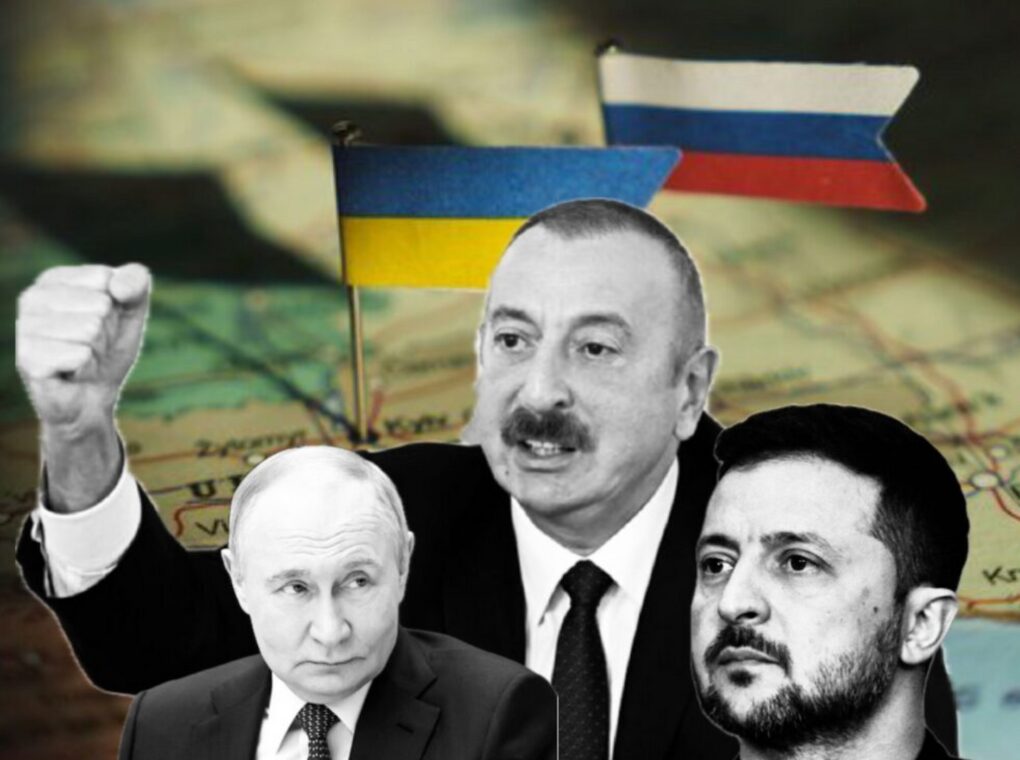Azerbaijan, once a steady ally of Russia, appears to be rethinking its stance amid the ongoing conflict in Ukraine. Reports suggest that following Russian attacks on energy infrastructure connected to Azerbaijan inside Ukraine, the country might shift from its traditional neutrality and consider supplying military aid to Ukraine. This change could have far-reaching effects on regional dynamics and Russia’s influence in its neighborhood.
Growing Strains Between Azerbaijan and Russia
Historically, Azerbaijan maintained warm relations with Moscow, benefiting from political alignment and economic ties, especially in the energy sector. However, recent Russian strikes against infrastructure linked to Azerbaijan in Ukraine have stirred tensions between the two capitals. Such attacks don’t just damage physical assets—they threaten Azerbaijan’s economic interests, given how crucial energy exports are to its economy.
These developments have unsettled Azerbaijan’s leadership. The destruction of key infrastructure in a conflict zone, tied to its own resources, challenges the previous assumption that Azerbaijan could remain uninvolved. It signals a stark reminder that the war’s effects are crossing borders and putting pressure on traditional alliances.
Azerbaijan and Russia have also unexpectedly become unprecedentedly strained when several dozen ethnic Azerbaijanis were arrested in the Russian city of Yekaterinburg in connection with a series of murders that took place fifteen years ago. While in detention, the men were also beaten, and two brothers—the main suspects in the case—subsequently died. Baku’s response has been unusually strong by the standards of post-Soviet regimes, which are generally reluctant to risk falling foul of the Kremlin.
Russia is bogged down in its war against Ukraine and isolated in the West by countless sanctions, which has made Azerbaijan an important logistics partner for Moscow. Since the start of the full-scale invasion of Ukraine, Moscow had been actively investing in transport infrastructure on Azerbaijani territory and projects along the Russia-Iran-India route.
Military Cooperation Talks with Ukraine
In light of these pressures, Ukrainian officials—led by President Volodymyr Zelenskyy—are reportedly engaging Azerbaijan in talks about possible military cooperation. This dialogue could lead to Azerbaijan providing weapons, intelligence support, or other forms of aid to Ukraine.
Such a step would break from Azerbaijan’s earlier stance of neutrality. The implications are significant, as they suggest that Azerbaijan’s interests and strategic priorities are evolving in real time. Support from a country formerly friendly to Russia would boost Ukraine’s position and potentially complicate Russia’s military calculus.
Earlier Azerbaijan had threatened to supply weapons to Ukraine if Russia strikes on Energy Facilities in Kyiv linked to Baku. The ongoing Russian strikes on energy infrastructure connected to Azerbaijan in Ukraine have brought a new dimension to Azerbaijani foreign policy calculations. While traditionally hesitant to supply arms during the conflict, these provocations may prompt Baku to reconsider, potentially easing its ban on military transfers to Kyiv. Such a move would underscore the stakes involved for regional actors caught between superpower rivalries and local security concerns, illustrating the unpredictable and intertwined nature of the Ukraine war’s wider geopolitical landscape.
Repercussions for Regional Security
The prospect of Azerbaijan spilling over into active support for Ukraine changes the security calculations in the South Caucasus and beyond. Russia now faces a higher risk of diplomatic isolation. Moreover, this shift could set off a chain reaction among countries watching closely, possibly urging other nations feeling squeezed by the conflict to adjust their own policies.
Azerbaijan itself has multiple regional concerns—border disputes with Armenia and the need to maintain good relations with neighboring powers like Iran. Entering the war actively poses risks but also signals Baku’s determination to safeguard its interests.
Difficulties of Staying Neutral
Azerbaijan’s predicament highlights how neutrality in such conflicts can be a tightrope walk. While remaining neutral might appear safe politically and economically, it is challenged when critical interests—such as economic assets—come under threat. The struggle to balance relations between powers while protecting national priorities becomes increasingly hard in these tense times.
In Azerbaijan’s case, these pressures show how neutrality is often contingent and fragile, vulnerable to rapid breakdown when a country’s core interests are jeopardized.
What This Means for Russia
Should Azerbaijan proceed to support Ukraine militarily, Moscow would face a notable diplomatic setback. Already buffeted by sanctions and battlefield challenges, Russia would lose some of its regional support and influence, making it harder to project power locally and internationally.
The deterioration of ties with Azerbaijan highlights a broader difficulty for Russia—sustaining alliances amidst rising opposition and contested influence across Eurasia.
Global Reflections
Beyond the regional consequences, Azerbaijan’s potential pivot illustrates a wider trend of shifting loyalties driven by pragmatic considerations rather than simple alliances. Countries around the world are forced to rethink their positions in a conflict affecting economics and security far beyond Ukraine’s borders.
For Ukraine, expanding partnerships—including with former Russian allies—strengthens its military and diplomatic standing. For others, watching Azerbaijan’s moves might lead to fresh reassessments of where to align in an increasingly complex geopolitical scene.
The reports that Azerbaijan, traditionally linked with Russia, may arm Ukraine following the damaging strikes on its associated infrastructure reveal how fluid the conflict’s geopolitical landscape is. Economic factors and national security concerns prompt countries to shift policies that once seemed fixed.
If Azerbaijan fully embraces this new role, it could alter Moscow’s regional strength and change the trajectory of the war. This serves as a reminder that alliances in such conflicts are not guaranteed; they evolve with the changing realities on the ground.
